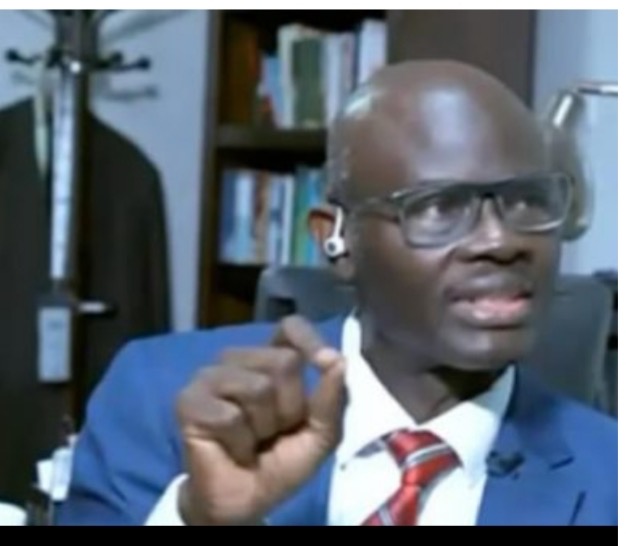By Ivie Emmanuel
As Nigeria and Nigerians bask in the euphoria of flooring the P & ID in the controversial $11 billion judgement debt case at the Business & Property Court in London, United Kingdom, an erudite lawyer and senior advocate of Nigeria, SAN, Abiodun Owonikoko, has expressed relief at the favourable judgement, stating that Nigeria would have ceased to be a going concern economically if the judgement had been otherwise. Owonikoko said with the judgement, the United Kingdom “has given us a lifeline to let us breathe”.
The court had on Monday halted the enforcement of the staggering arbitration award in favour of the P & ID against Nigeria.
In the judgement, Justice Robert Knowles faulted the process through which the P & ID secured the 2010 contract to build a gas-processing plant in Calabar, Cross River State, describing it as “fraudulent”.
Speaking Monday night as guest on Channels Television programme, Politics Today, monitored by thenewspad.com, Owonikoko lamented that many government officials seemed to have compromised the interest of the country “to put us in this bind”. He expressed doubt that had the matter been heard in Nigeria, we would have gotten a favourable judgement that has come in our favour in England.
Owonikoko also expressed the need to review the country’s law that insists on proof beyond reasonable doubt in criminal cases or cases of dishonesty, stressing that if the UK court had adopted this position, the outcome would not have been in Nigeria’s favour. He believed that there was no way corruption could be fought successfully if the principle of proof beyond reasonable doubt were to apply in such cases.
According to the learned silk, “The first time this news broke, it was my 18-year-old daughter in the UK who called me and said daddy, how did it happen? Who are the lawyers of Nigeria? She said we will have to pay debts all our lives. She could see that this debt is not going to be paid by us, but by them. So, thank goodness that rule of law rescued Nigeria in the sense that I read a bit of the judgement in the UK commercial court and we need to be realistic. The number of things that happened that culminated in this liability, essentially were blamable on our own Nigerian system because regardless of what you could say about the profile of that company, I could see consistently they have been doing business with Nigerian government for almost 20 years.
“Critical contracts with the Nigerian Police, Nigerian Army, all of them were detailed in that judgement dating back to 1992 or whatever; in millions and millions of dollars. So, that they were able eventually to also get this contract and railroad government to signing up and commit Nigerian government even when all the parameters to ensure that the project was implementable were not yet in place”.
He noted that while gas supply for the controversial project was a critical element, “If it did not exist, there was no basis to go into the contract”. He said the P & ID made three or four failed attempts to access some private oil operators to access gas, namely: Folawiyo Petroleum Company, Chevron, Agip, and Exxon Mobil, but “It was when they could not find their ways through these companies, that they decided to exploit the government option as the overall owners of gas resources in Nigeria. But then, there was pressure on government to deliver on its policy on gas and the people were exploiting that. A lot of internal government officials seemed to have compromised the interest of the sovereign nation to put us in this bind”.
Relieved that Nigeria had been saved from being liquidated, he said “Human beings would be here, land would be there, but it would not be a going concern. Already, without that liability, you can see how we are struggling to get sufficient FOREX to even do the normal international trade that Nigerians engage in. There are FOREX challenges here. So, imagine if we are to confront this amount of money which would then be enforced; because they are going to be enforced in England”. He said Nigeria’s saving grace was the review of the process of adjudication, stating that “I read in the judgement that initially, they were going to put the law applicable to foreign law, and also the venue to be foreign. There was a negotiation to now make it Nigerian law but London system of arbitration. That actually probably saved the situation. If the matter had been in Nigeria, I am not even sure that we would have gotten a favourable judgement that has come in our favour in England”.
Concerned that there are so many “dodgy debts now that Nigerian government is carrying in its books obtained from Nigerian courts; collusive judgements where people would go and compromise; garnishee, all sorts, running into trillions”, he said some of them “are rather derivative claims from people who claim to have played a role to facilitate those debts being incurred. And they are even suing the government and the courts are giving them judgement”.
Disclosing that the bulk of the debts owed by the Nigerian government through court orders arose from Nigeria receiving debt bailout from international creditors, otherwise known as the “Paris Club debts”, Owonikoko stated that “People now generate new debts out of Paris Club debts claiming that some monies were not properly reconciled, and monies were owed to some arms of government and people who came up as consultants, claiming that they have found debts, and then assisting them through Governors’ Forum to recover money. Only last year or early this year, the Supreme Court came down heavily that debts owed to state authorities cannot be subject of negotiation by some consultants. These are statutory debts; public revenue. What role are you playing? So, go and sue the local governments that you claim you recovered money for, or go and sue the state governments – Governors’ Forum or whatever”.
He said one of the things the present Attorney General of the Federation and Justice Minister has identified that he wants to address “is this issue of debts that have piled up and contracts that are skewed against Nigeria and we end up having to be begging our way out of binds that the civil service and technical people in government plunged the country into”.
Owonikoko said the country needed to review that, as well as “review our contract documentation in terms of heavy investment projects so that even if we need international consultants to assist us, and we need to come up with a template that can assist all government agencies to know that if you are going into a contract of this nature, these are the signals that you must identify and ensure that the clauses are so tightly drafted that we can at least predict the outcome of what we are signing”.
On the need to take another look at the principle of proof beyond reasonable doubt, Owonikoko submitted that “when it came to the issue of determining the question of dishonesty, the court in England decided that dishonesty did not have to be proved beyond reasonable doubt. Unfortunately in Nigeria, anything that appears to be so, they say you must prove beyond reasonable doubt. There is no way you can fight corruption through the concept if almost everything that has a tinge of criminality must be proved beyond reasonable doubt. If that was to be the position in England, we probably would not be out of the woods by now.






Leave a Reply